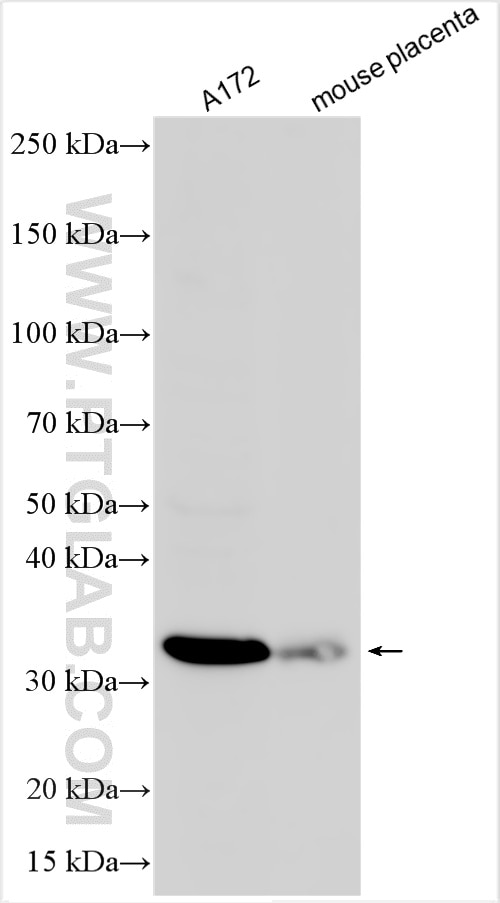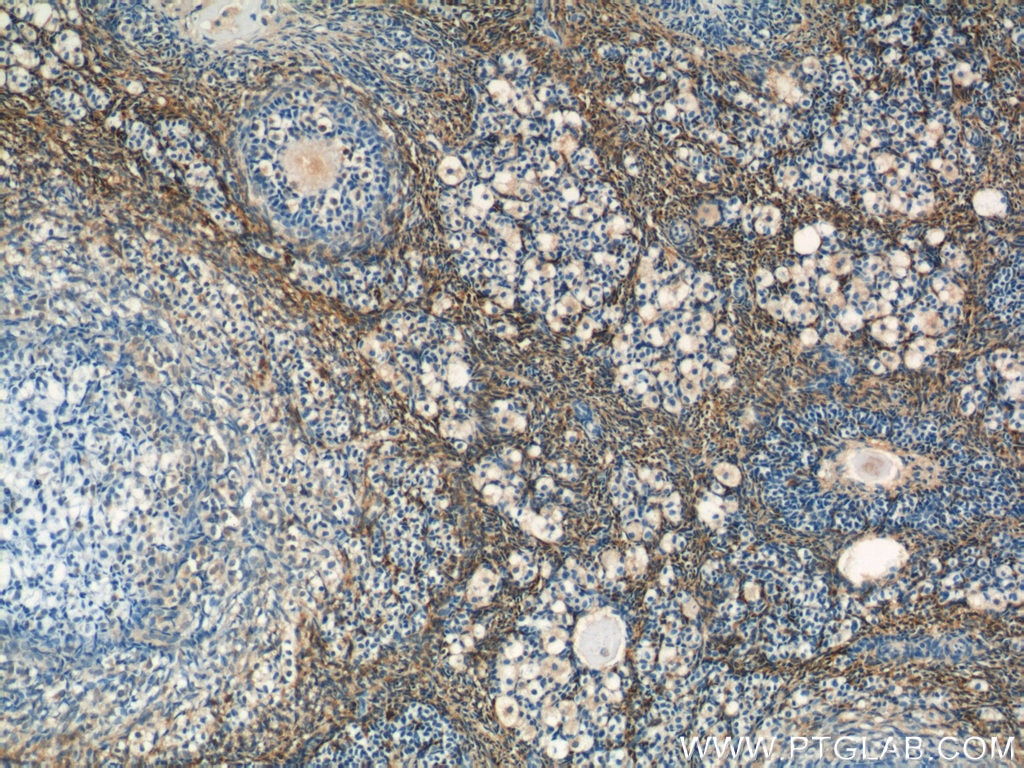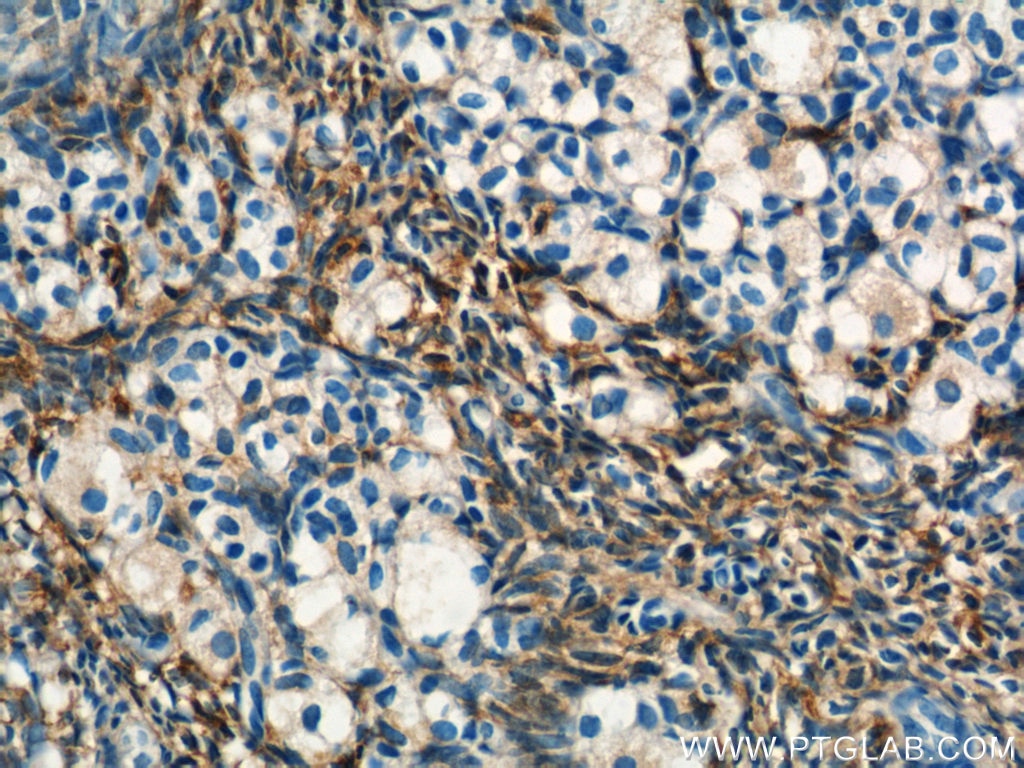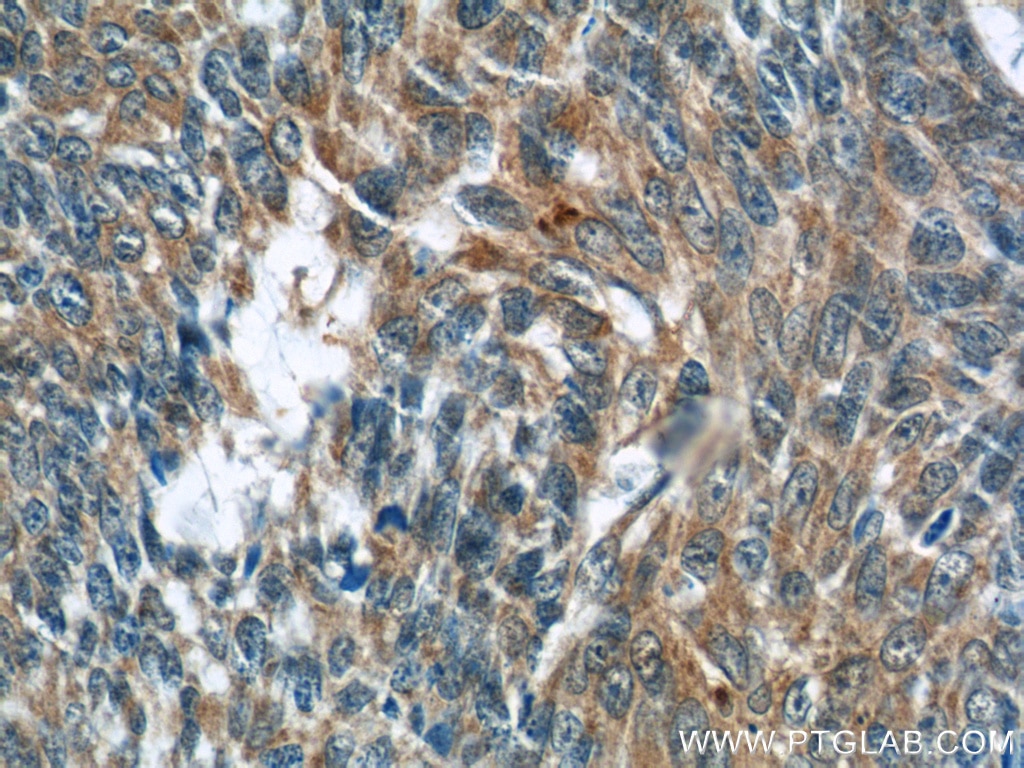Tested Applications
| Positive WB detected in | A172 cells, mouse placenta |
| Positive IHC detected in | human ovary tissue Note: suggested antigen retrieval with TE buffer pH 9.0; (*) Alternatively, antigen retrieval may be performed with citrate buffer pH 6.0 |
Recommended dilution
| Application | Dilution |
|---|---|
| Western Blot (WB) | WB : 1:200-1:1000 |
| Immunohistochemistry (IHC) | IHC : 1:20-1:200 |
| It is recommended that this reagent should be titrated in each testing system to obtain optimal results. | |
| Sample-dependent, Check data in validation data gallery. | |
Product Information
20251-1-AP targets Asprosin in WB, IHC, ELISA applications and shows reactivity with human, mouse samples.
| Tested Reactivity | human, mouse |
| Host / Isotype | Rabbit / IgG |
| Class | Polyclonal |
| Type | Antibody |
| Immunogen |
Peptide Predict reactive species |
| Full Name | fibrillin 1 |
| Calculated Molecular Weight | 30 kDa |
| Observed Molecular Weight | 32 kDa |
| GenBank Accession Number | NM_000138 |
| Gene Symbol | Fibrillin 1 |
| Gene ID (NCBI) | 2200 |
| Conjugate | Unconjugated |
| Form | Liquid |
| Purification Method | Antigen affinity purification |
| UNIPROT ID | P35555 |
| Storage Buffer | PBS with 0.02% sodium azide and 50% glycerol, pH 7.3. |
| Storage Conditions | Store at -20°C. Stable for one year after shipment. Aliquoting is unnecessary for -20oC storage. 20ul sizes contain 0.1% BSA. |
Background Information
Asprosin is a hormone derived from fibrillin-1 that plays a role in regulating glucose metabolism and appetite. It's released by adipose tissue during fasting and stimulates the liver to release glucose into the bloodstream, ensuring energy availability. Asprosin also influences appetite and body weight by acting on neurons in the hypothalamus. It has been linked to various metabolic diseases, including obesity, type 2 diabetes, and polycystic ovary syndrome (PCOS). The detected molecular size is consistent with that in the article PMID: 35079041.
Protocols
| Product Specific Protocols | |
|---|---|
| IHC protocol for Asprosin antibody 20251-1-AP | Download protocol |
| WB protocol for Asprosin antibody 20251-1-AP | Download protocol |
| Standard Protocols | |
|---|---|
| Click here to view our Standard Protocols |










